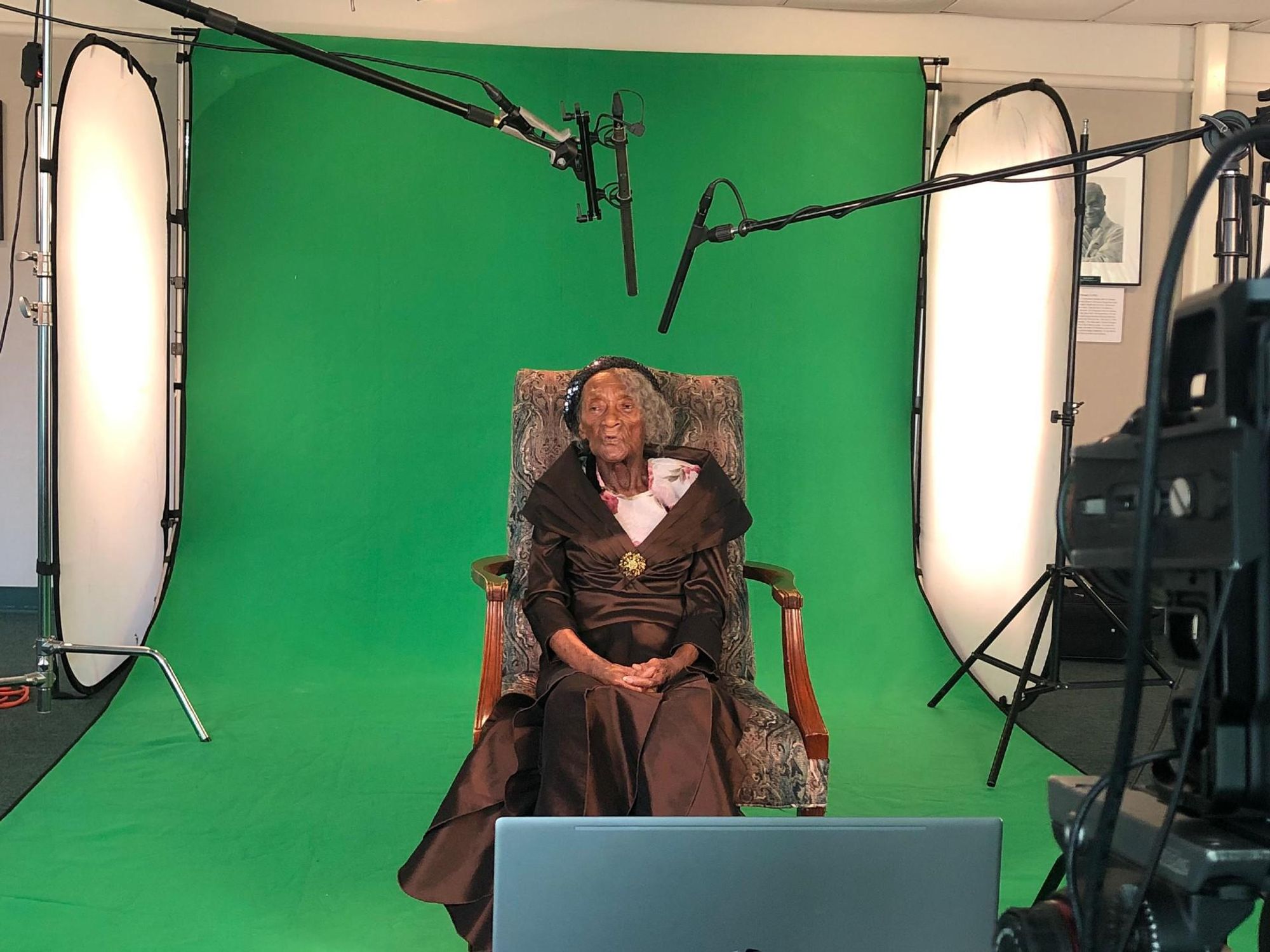LA-Based StoryFile Raises Another Round to Expand Its Interactive Videos
Francesca Billington is a freelance reporter. Prior to that, she was a general assignment reporter for dot.LA and has also reported for KCRW, the Santa Monica Daily Press and local publications in New Jersey. She graduated from Princeton in 2019 with a degree in anthropology.

In April, the two living survivors of the 1921 Tulsa Race Massacre sat down for an interview designed to archive their stories using artificial intelligence.
StoryFile, a Los Angeles startup that creates AI-powered interactive videos, prepared the questions. The company usually invites guests to its Hollywood studio; Star Trek actor William Shatner spent five days there in March answering questions before a camera.
After recording 106-year-old Lessie Benningfield Randle and 107-year-old Viola Fletcher, the Gilcrease Museum in Tulsa set up a lifesize screen to display virtual versions of the women. Guests could ask them questions, almost like having a conversation in person.
"If you're reading something or watching a documentary, you're seeing what someone else has decided they want you to know," said CEO Heather Smith, who thought of the concept in 2010. "It's a very passive experience."
Instead, ask the expert directly.
Nearly a year after closing a $2 million round, the L.A. company is raising another $4 million from undisclosed investors with plans to launch an iPhone version of the technology. And it hopes to close a Series A by early next year.
The startup is one of several hoping to capitalize on new technology that enables people to appear present even long after their death. Or, virtually train new employees that work in locations across the world.
Storyfile's software, dubbed Conversa, relies on a reservoir of pre-recorded responses. After a user asks a question, Conversa shuffles the taped interview to find the best response.
Since launching in 2017, the company has archived survivors of the Holocast, astronaut Terry Virts and Ashish Jha, a global health advocate whose interview about COVID-19 was projected at the Boston Museum of Science.
Plus, a few entrepreneurs, entertainers and "wealthy individuals" who want to preserve their family histories, said StoryFile's Director Jay Plourde. The videos can also be displayed through holographic imaging, though the company isn't engineering those in-house.
And come the fall, users willing to pay a fee (Plourde didn't disclose how much) can use a mobile version called StoryFile Life to produce their own videos.
"You use our script and your iPhone to ask questions of your grandmother and grandfather to preserve that information for posterity," Plourde said.
The software, he said, has applications beyond documenting aging family members or personal heroes. Massive commercial retailers are using it to train new store managers. An unnamed online education company is piloting the tech on its platform.
It may even make its way into dating apps, where users could upload responses to a standard list of 10 or 20 questions.
"You would be able to interview someone before you ever had to meet them," said Plourde.
Editor's note: This story has been updated with comments from CEO Heather Smith.
- Storyfile Uses AI to Allow Users to Talk with History - dot.LA ›
- How ARHT Media's Holograms Work - dot.LA ›
- Meet the L.A. Startup That Lets People Talk to the Dead - dot.LA ›
- Meet the L.A. Startup That Lets People Talk to the Dead - dot.LA ›
- Proto is Reimagining Hologram Tech at A Hefty Price - dot.LA ›
Francesca Billington is a freelance reporter. Prior to that, she was a general assignment reporter for dot.LA and has also reported for KCRW, the Santa Monica Daily Press and local publications in New Jersey. She graduated from Princeton in 2019 with a degree in anthropology.



 Image Source: Revel
Image Source: Revel
